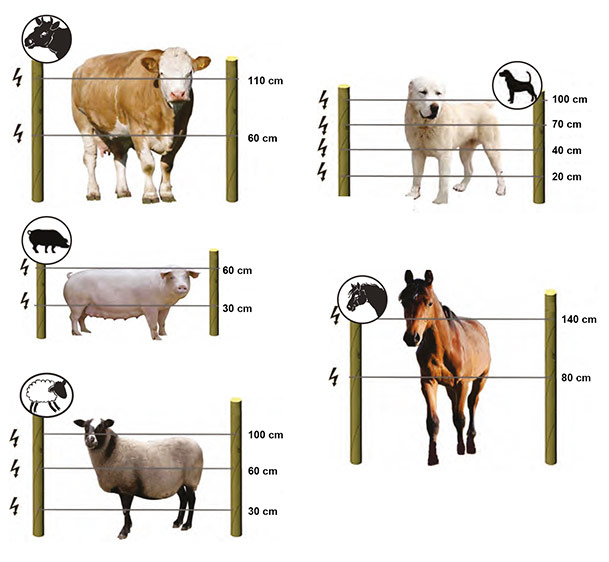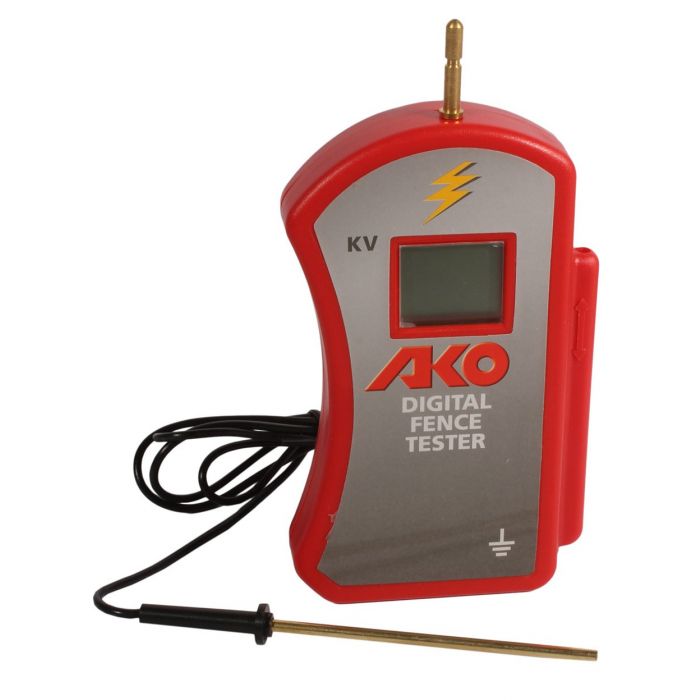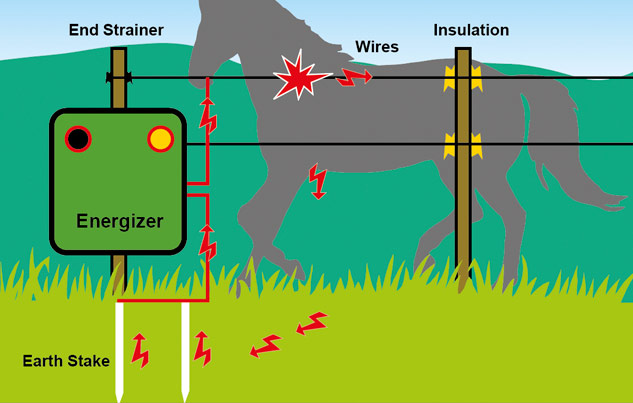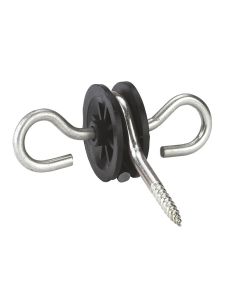Digital Fence Voltmeter/Tester
Available Quantity: 0 in stock!
Wire Height Guide
Not sure what fence height is right for you? Here's what we recommend.

Post Distances
A handy guide to insulator posts distances to make sure fences don't hang too low.
| Fending wire and twines | 6-8m distance depending on the weight of the fence material |
| Tapes: | 3m for 40mm tape and 5m for 20mm tape. Use 6-8m for 12.5mm tape. |
| Ropes: |
4m with 7-8mm rope diemeters and 6m with 5-6mm rope diameters. |
FREE Shipping on Orders over £49.99 (unless your items in your order weigh over 15kg).
Our standard shipping rate is £4.95 for orders weighing under 15kg for England, Wales and most of Scotland. Check your postcode in the basket or checkout to see if your region falls within our standard shipping rate. The shipping cost will be automatically added to your grand total during checkout.
NEXT DAY delivery: Although we dispatch on the same day, due to couriers being extremely busy during this period, we cannot unfortunately guarantee that your order will reach you on time.
STANDARD delivery: You should receive your order within 3-6 days depending on the delivery option you choose, however the vast majority take 2-4.
For a full breakdown of our shipping rates read here.
If you no longer wish to keep your purchase, you must inform us in writing within 14 days of accepting delivery. There will be a cost to collect the item, please see full return details.
IMPORTANT: The original product packaging must be free of damage or we will not accept the return, so please ensure your return protected well. For example, if you bought a pair of boots that came in a branded box do not tape the box and stick labels to it or this will be considered damage.
Unfortunately we cannot accept returns of certain types of products, such as respirator masks and face masks, for health and safety reasons.

How does an electric fence work?

Back to basics
Electric fence systems are a simple loop. An energiser emits power that is carried by fencing wires. The wires are supported by plastic insulator rods (which prevent power being lost into the ground) and connect back to the energiser.
When an animal comes into contact with a wire they get an unpleasant but harmless shock that’s conducted through their body to the ground and back to the energiser’s earth stakes, which are placed deep in the soil.
Get the earthing right
If earth stakes are not placed correctly in the soil, the electric fence will not work. They need to be placed as deep as possible in the ground where the soil is damp. If the earthing is poor the power will ‘trickle away’ and not flow back to the energiser, there is no closed circuit and the animal will not get a shock.
10 Tips for Perfect Fencing
- Make sure the earthing is at least 1m deep
- Don’t use broken fence wire
- Use conductive material with low resistance
- Don’t tie conductive plastic wires together. Use connectors
- Keep your fence free from growth. It can impair the power output
- Weather-beaten insulators cause a high loss of output
- Keep the fence wire and earthing rod free from rust
- Use high voltage-resistant wire to make the connection between the energiser and fencing as strong as possible
- Check the battery in battery-driven energisers regularly
- Use a voltage tester to ensure the fence is carrying a minimum of 2000v at each point













